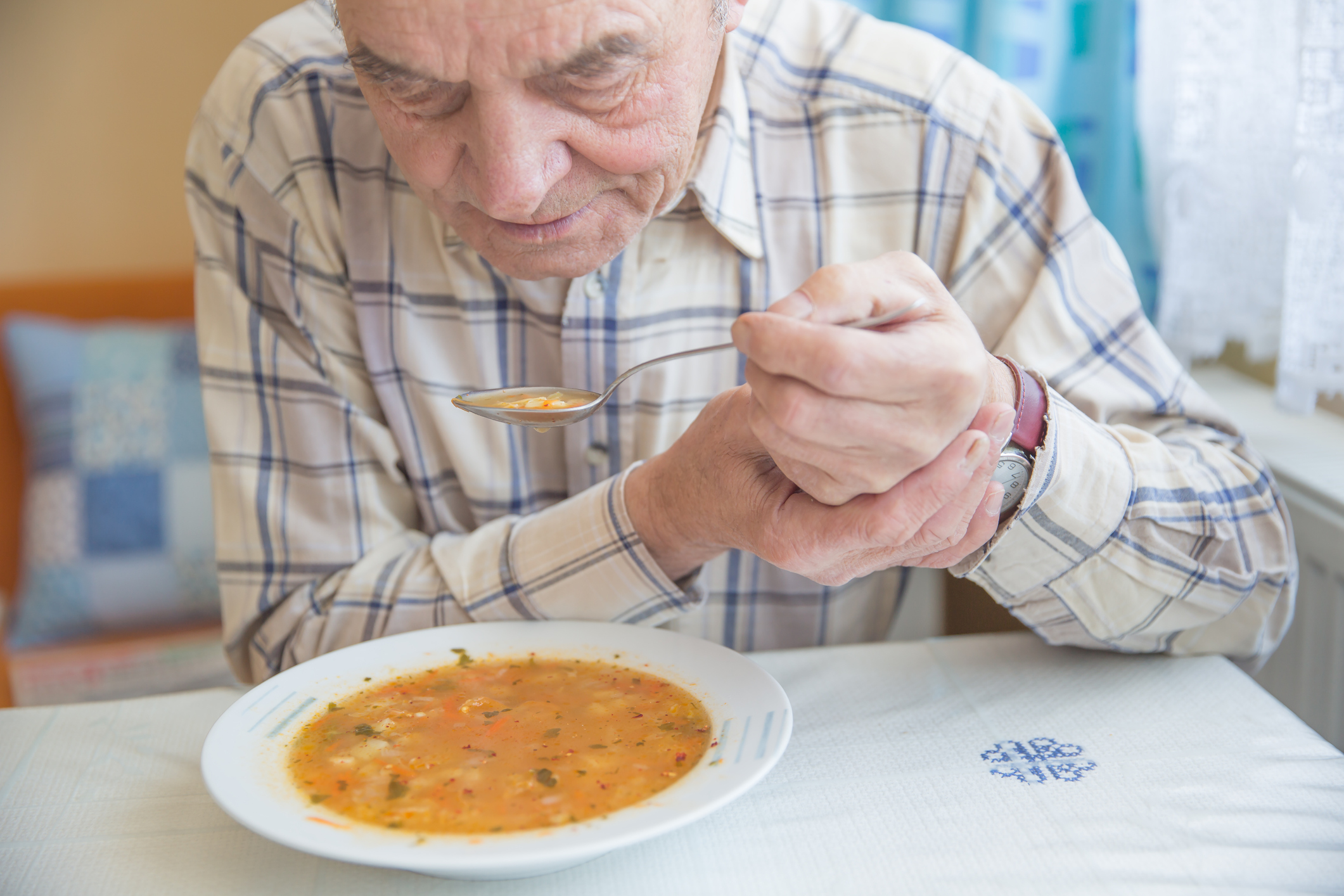
Parkinson’s disease is a neurological disorder that affects the nervous system and causes various motor symptoms. Alongside medical interventions, diet plays a crucial role in managing the symptoms and overall well-being of individuals with Parkinson’s disease. One important aspect of this is breakfast, which provides the essential nutrients needed to start the day on the right note. In this article, we will explore the impact of nutrition on Parkinson’s disease and discuss some recommended breakfast foods for individuals with this condition.
Understanding Parkinson’s Disease and Nutrition
Parkinson’s disease is a progressive disorder that primarily affects movement. It is caused by the loss of dopamine-producing cells in the brain. While there is no cure for Parkinson’s disease, a well-balanced diet can help manage symptoms and improve quality of life.
Individuals diagnosed with Parkinson’s disease often find themselves navigating a complex landscape of symptoms and challenges. From tremors and stiffness to balance issues and cognitive changes, the impact of this neurodegenerative condition extends far beyond just physical movement. This is why a holistic approach to managing the disease, including attention to nutrition, is crucial for enhancing overall well-being.
The Role of Diet in Managing Parkinson’s Disease
Diet plays a vital role in managing Parkinson’s disease. A nutritious diet can help optimize medication effectiveness, maintain a healthy weight, promote digestion, and alleviate some of the non-motor symptoms such as constipation and fatigue. Additionally, certain nutrients have been shown to have neuroprotective properties and may slow the progression of the disease.
When crafting a diet plan for individuals with Parkinson’s disease, healthcare professionals often emphasize the importance of a variety of foods rich in antioxidants, vitamins, and minerals. These nutrients not only support overall health but also specifically target aspects of the disease process, potentially offering some relief from symptoms. For example, foods high in antioxidants like berries, leafy greens, and nuts may help combat oxidative stress, which is believed to play a role in the development and progression of Parkinson’s.
Nutritional Challenges Faced by Parkinson’s Patients
Individuals with Parkinson’s disease often face nutritional challenges. The disease can affect appetite, impair swallowing, and cause gastrointestinal issues, making it difficult to consume adequate amounts of essential nutrients. This is why breakfast, in particular, becomes crucial in providing a good baseline of nutrition for the day.
In addition to physical symptoms that directly impact eating, individuals with Parkinson’s may also experience medication side effects that influence appetite and taste perception. These factors can further complicate the nutritional status of patients, highlighting the need for personalized dietary strategies that address both the disease-related challenges and the individual’s unique needs and preferences.
The Importance of Breakfast for Parkinson’s Patients
Breakfast is considered the most important meal of the day for everyone, but it holds special significance for individuals with Parkinson’s disease. Breakfast kickstarts your metabolism, replenishes glucose levels, and provides energy to carry you through the day. For Parkinson’s patients, having a nutrient-rich breakfast can also help manage their symptoms and improve their overall well-being.
But what exactly is it about breakfast that makes it so crucial for individuals with Parkinson’s disease? Let’s take a closer look at how breakfast can influence Parkinson’s symptoms and why specific nutrients are needed in a Parkinson’s friendly breakfast.
How Breakfast Can Influence Parkinson’s Symptoms
The composition of breakfast plays a significant role in managing Parkinson’s symptoms. It is important to consume foods that are rich in nutrients that support brain health, such as antioxidants, Omega-3 fatty acids, and vitamins.
When you have Parkinson’s disease, certain brain cells that produce dopamine, a neurotransmitter responsible for movement control, start to degenerate. This leads to the characteristic motor symptoms of Parkinson’s, such as tremors, stiffness, and difficulty with balance. However, research has shown that certain nutrients found in breakfast can help support the health of these dopamine-producing cells and potentially slow down their degeneration.
Nutrients Needed in a Parkinson’s Friendly Breakfast
When planning a breakfast for Parkinson’s patients, it is essential to include specific nutrients that have been shown to benefit individuals with this condition. Some of these nutrients include:
- Antioxidants: Berries, spinach, and dark chocolate are rich sources of antioxidants that can help reduce oxidative stress in the brain. Oxidative stress is believed to contribute to the degeneration of dopamine-producing cells, so incorporating antioxidant-rich foods into breakfast can be particularly beneficial for Parkinson’s patients.
- Omega-3 Fatty Acids: Include flaxseeds, chia seeds, and fatty fish like salmon to provide essential Omega-3 fatty acids. These healthy fats have anti-inflammatory properties and may help reduce inflammation in the brain, potentially protecting dopamine-producing cells from further damage.
- Vitamin B: Incorporate whole grains, eggs, and dairy products to ensure an adequate intake of B vitamins that support neurological function. B vitamins, especially B6, B9 (folate), and B12, are crucial for maintaining the health of nerve cells and may help improve cognitive function in individuals with Parkinson’s disease.
By including these nutrient-rich foods in a Parkinson’s friendly breakfast, individuals with Parkinson’s disease can provide their bodies with the necessary building blocks to support brain health, manage symptoms, and improve overall well-being.
Remember, breakfast is not just about filling your stomach in the morning; it’s about nourishing your body and giving it the best possible start to the day. So, make sure to prioritize a nutrient-rich breakfast, especially if you have Parkinson’s disease.
Recommended Breakfast Foods for Parkinson’s Disease
Making wise choices when selecting breakfast foods for individuals with Parkinson’s disease can make a significant difference in managing their symptoms and overall health.
Breakfast is often considered the most important meal of the day, especially for those with Parkinson’s disease. Starting the day with a nutritious meal can help regulate medication absorption and provide the necessary energy to kickstart the day on a positive note.
Whole Grains and Parkinson’s Disease
Whole grains, such as oatmeal, whole wheat bread, and quinoa, are an excellent source of fiber and essential vitamins and minerals. They provide sustained energy and help stabilize blood sugar levels, which can contribute to improved motor function and mental clarity.
Oatmeal, in particular, is a great choice due to its high fiber content, which aids in digestion and promotes gut health. Adding a sprinkle of cinnamon on top not only enhances the flavor but also provides anti-inflammatory properties that can benefit individuals with Parkinson’s disease.
The Benefits of Protein-Rich Foods
Protein is an important nutrient for individuals with Parkinson’s disease. Including protein-rich foods like eggs, Greek yogurt, and lean meats in breakfast can help support muscle strength, improve motor function, and contribute to satiety throughout the day.
Eggs, a versatile and nutrient-dense food, are rich in choline, a nutrient that supports brain health and neurotransmitter function. Pairing eggs with a side of avocado not only adds healthy fats but also provides potassium, a mineral that is crucial for nerve function and muscle control.
Fruits and Vegetables: A Must-Have for Breakfast
Fruits and vegetables are packed with essential vitamins, minerals, and antioxidants. Incorporating options like bananas, oranges, leafy greens, and bell peppers provides a wide range of beneficial nutrients while adding natural sweetness to your breakfast.
Leafy greens like spinach and kale are powerhouse foods that are rich in folate, a B vitamin that plays a role in dopamine production. Including a handful of berries, such as blueberries or strawberries, can further boost antioxidant intake, potentially aiding in reducing oxidative stress and inflammation associated with Parkinson’s disease.
Foods to Avoid for Parkinson’s Patients
While there are many foods that can benefit individuals with Parkinson’s disease, there are also some foods that should be avoided or consumed in moderation.
Foods That May Exacerbate Parkinson’s Symptoms
Certain foods can potentially worsen Parkinson’s symptoms or interfere with medication effectiveness. These include processed foods high in sugar, refined grains, and unhealthy fats. It’s best to limit or avoid these foods and opt for wholesome alternatives.
The Impact of Caffeine and Parkinson’s Disease
Caffeine, found in coffee, tea, and some soft drinks, may have both positive and negative effects on Parkinson’s disease. While some studies suggest that moderate caffeine consumption may reduce the risk of developing Parkinson’s disease, excessive caffeine intake can interfere with medication effectiveness and exacerbate symptoms in some individuals. It’s important to consult with a healthcare professional to determine the appropriate caffeine intake for each individual.
Creating a Balanced Breakfast Plan
Designing a balanced breakfast plan for individuals with Parkinson’s disease can ensure they receive optimum nutrition and support overall well-being.
Tips for Preparing a Parkinson’s-Friendly Breakfast
Here are some tips to help you prepare a breakfast that is both nutritious and enjoyable for individuals with Parkinson’s disease:
- Plan ahead: Have all the necessary ingredients on hand to avoid decision fatigue and make breakfast preparation easier.
- Keep it simple: Choose recipes that are easy to prepare and require minimal effort.
- Vary the menu: Incorporate a variety of foods to ensure an array of nutrients and prevent boredom.
Maintaining Variety in Your Breakfast Choices
Try experimenting with different recipes and ingredients to make breakfast enjoyable and prevent monotony. Mix it up with smoothies, vegetable omelets, whole grain pancakes, and homemade granola. Incorporating new flavors and textures can keep breakfast exciting and motivate individuals with Parkinson’s disease to maintain a healthy eating routine.
By giving priority to a nutritious breakfast, individuals with Parkinson’s disease can set themselves up for a productive and symptom-managed day. Consulting with a healthcare professional or dietitian can provide personalized guidance and help create a breakfast plan that suits individual needs, preferences, and overall health goals.
See More on Video

The Parkinson’s Protocol™ By Jodi Knapp a natural program to treat Parkinson’s disease is provided online. it includes 12 easy steps to repair your body and reduce the symptoms of this disease. The creator of this program has divided into four segments to cover a complete plan to treat this disease along with improving your health and life by knowing everything about this health problem.